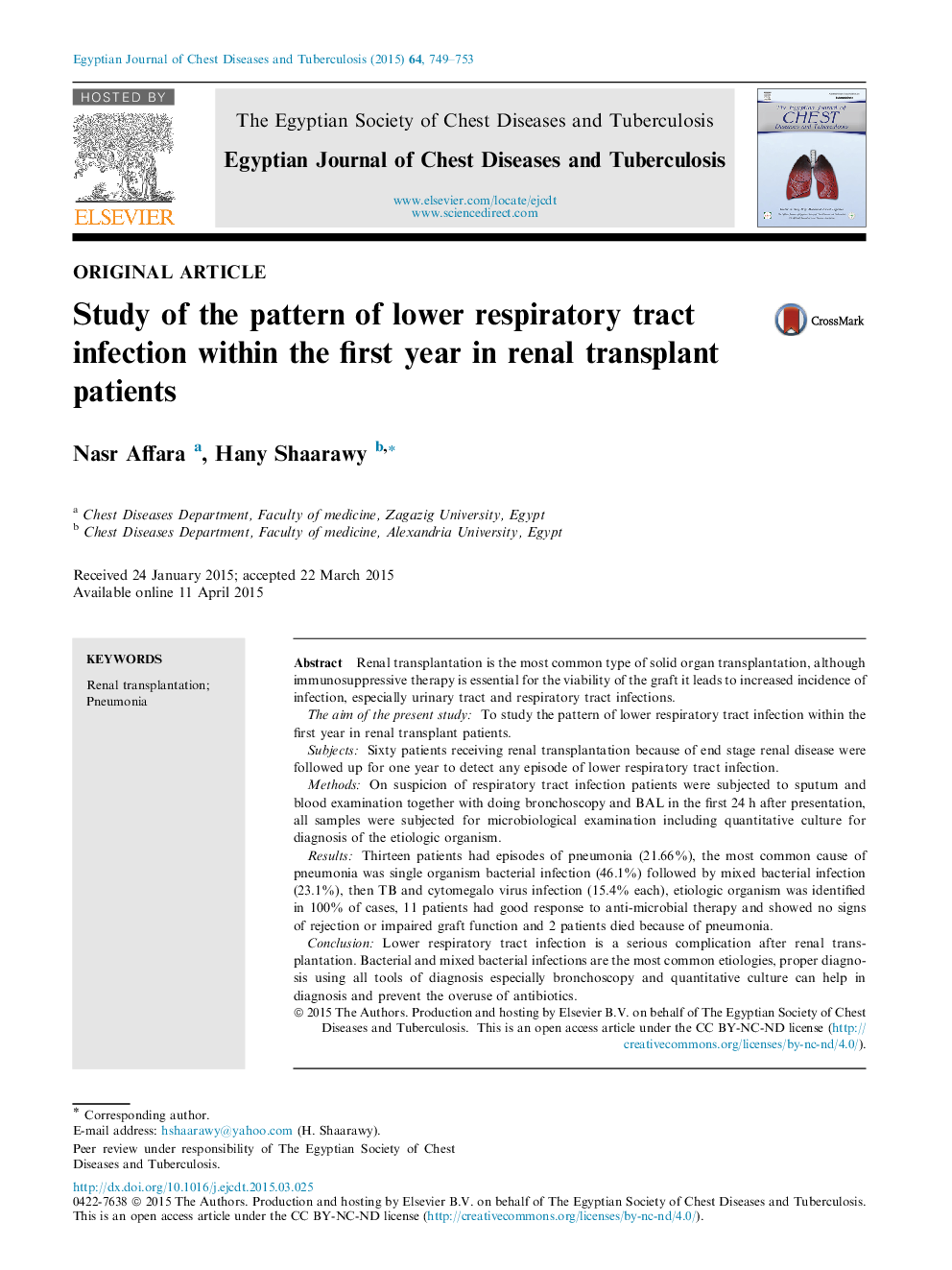| Article ID | Journal | Published Year | Pages | File Type |
|---|---|---|---|---|
| 3400041 | Egyptian Journal of Chest Diseases and Tuberculosis | 2015 | 5 Pages |
Renal transplantation is the most common type of solid organ transplantation, although immunosuppressive therapy is essential for the viability of the graft it leads to increased incidence of infection, especially urinary tract and respiratory tract infections.The aim of the present studyTo study the pattern of lower respiratory tract infection within the first year in renal transplant patients.SubjectsSixty patients receiving renal transplantation because of end stage renal disease were followed up for one year to detect any episode of lower respiratory tract infection.MethodsOn suspicion of respiratory tract infection patients were subjected to sputum and blood examination together with doing bronchoscopy and BAL in the first 24 h after presentation, all samples were subjected for microbiological examination including quantitative culture for diagnosis of the etiologic organism.ResultsThirteen patients had episodes of pneumonia (21.66%), the most common cause of pneumonia was single organism bacterial infection (46.1%) followed by mixed bacterial infection (23.1%), then TB and cytomegalo virus infection (15.4% each), etiologic organism was identified in 100% of cases, 11 patients had good response to anti-microbial therapy and showed no signs of rejection or impaired graft function and 2 patients died because of pneumonia.ConclusionLower respiratory tract infection is a serious complication after renal transplantation. Bacterial and mixed bacterial infections are the most common etiologies, proper diagnosis using all tools of diagnosis especially bronchoscopy and quantitative culture can help in diagnosis and prevent the overuse of antibiotics.
